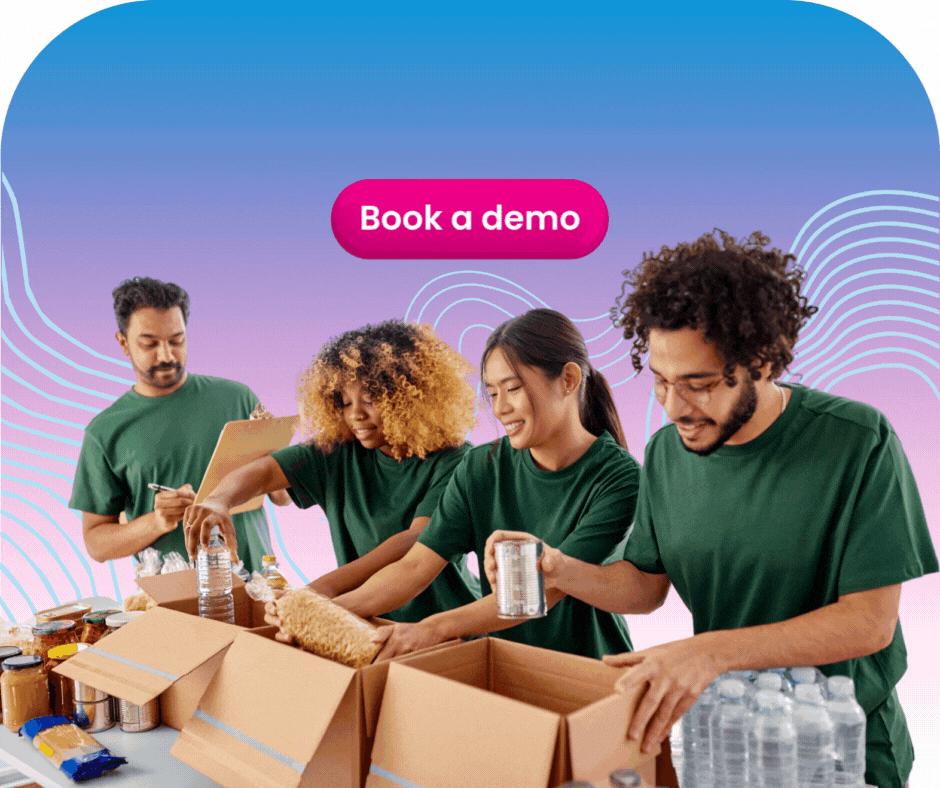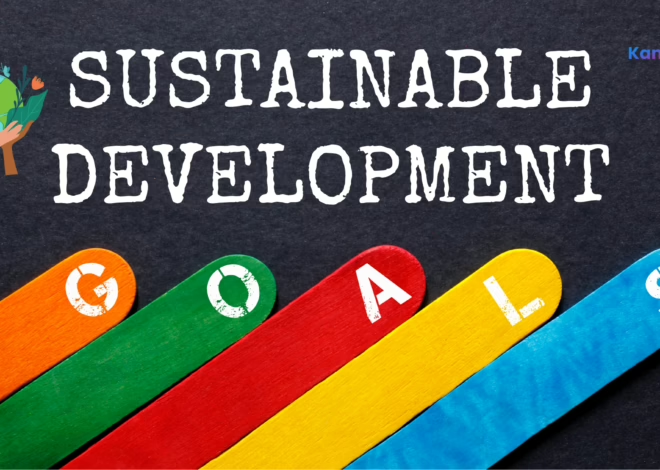
Community Engagement Jobs: 5 Game-Changing Roles That Can Transform Your Career
Table of Contents
More Than a Career: A Cause
What if your 9-to-5 could make lives better, build stronger neighborhoods, and give people a voice?
That’s what draws professionals to community engagement jobs, roles that sit at the intersection of purpose and people. These aren’t just titles; they’re movements powered by empathy, equity, and transformation. Every task in these roles, from community organizing to storytelling, is driven by a desire to spark dialogue and deepen trust.
In a world seeking connection, community engagement jobs are on the rise and more relevant than ever. Whether you’re launching a new local initiative, co-creating programs with marginalized voices, or simply opening a channel for honest communication, this field is becoming the heartbeat of organizations that truly want to serve their people.
And unlike traditional corporate paths, these roles don’t ask you to climb a ladder, they invite you to build a bridge. A bridge between institutions and individuals, between services and stories, between intention and impact.
Why Community Engagement Jobs Matter in 2025
We’re living through an era where isolation is growing, trust in institutions is shifting, and people crave meaningful connections. Whether it’s in education, nonprofits, government, or associations, community engagement professionals are the ones bringing people together, shaping change from the inside out.
In 2025, community engagement jobs are no longer niche, they’re strategic. Organizations are recognizing that real engagement builds loyalty, enhances equity, and fuels innovation. It’s not just about hosting events or sending newsletters; it’s about nurturing long-term relationships and inviting people to co-own the mission.
Whether you’re planning inclusive town halls, running social listening campaigns, managing digital communities, or supporting advocacy work – community engagement jobs place you at the center of change.
From public outreach to volunteer coordination, from grassroots movements to institutional reform, these roles are redefining how we serve, listen, and empower. Each position reflects a growing demand for compassion-driven leadership, cultural fluency, and the ability to turn community input into real-world impact.
So, if you’re someone who believes in showing up, listening deeply, and building with, not just for others, then exploring community engagement jobs might just be your next bold move.
Let’s explore the community engagement jobs that are changing lives and can change your career too!
1. Community Engagement Coordinator: The People’s Pulse | Community Engagement Jobs
If you want to work hands-on with diverse populations and be a bridge between institutions and the people they serve, this job is for you. Among the most dynamic and human-centered community engagement jobs, this role places you where the action is, right in the heart of the communities that need to be heard.
Community Engagement Manager/Coordinators are not just planners or liaisons; they are connectors, trust-builders, and translators. They act as the living, breathing link between what a community feels and what an organization can do about it.
What They Do:
- Facilitate relationships between communities and organizations
- Organize meetings, town halls, and forums to foster open dialogue
- Translate public needs into programmatic action that aligns with organizational goals
- Build culturally responsive strategies that ensure no voice is left behind
- Document community feedback and work closely with internal teams to turn insights into impact
Why It Matters:
They’re the boots-on-the-ground voice gatherers. Community Engagement Coordinators listen to lived experiences and turn feedback into real strategy. Their presence signals that an organization doesn’t just serve a community, it evolves with it. In the era of community engagement jobs, this role is a cornerstone of trust-building and equity.
By ensuring that engagement isn’t a one-time event but a continuous, respectful conversation, they help institutions stay accountable and relevant. These professionals also play a major role in breaking down systemic barriers to access, making this one of the most socially impactful community engagement jobs available today.
🔶 Leading with Example:
At a local city council, a Community Engagement Coordinator might lead listening sessions with underrepresented neighborhoods, ensuring upcoming housing policies reflect their needs. In another setting, such as a university, they might work with students and faculty to co-create inclusive campus programs, ranging from mental health initiatives to cultural festivals.
These real-life efforts not only improve services but create a sense of ownership among community members, strengthening engagement over the long term.
Career Path:
Typically requires a bachelor’s degree in social work, public administration, or communication. However, many successful professionals in community engagement jobs also bring lived experience, bilingual skills, or deep cultural competency to the table, making this a great entry point for those passionate about justice, representation, and local empowerment.
Some coordinators advance into roles like Director of Community Affairs or Policy Advisor, while others transition into program management, advocacy, or nonprofit leadership.
💡 If you’re a natural communicator with deep listening skills and a passion for people-powered change, the Community Engagement Coordinator role is one of the most meaningful and grounded community engagement jobs you can pursue.
2. Volunteer Engagement Manager: Builders of Movements | Community Engagement Jobs
People are the heart of every cause. Volunteer Engagement Managers ensure there’s a passionate, well-equipped volunteer force behind every successful initiative. Among the essential community engagement jobs, this role is all about mobilizing energy, building community spirit, and turning goodwill into measurable impact.
A strong Volunteer Engagement Manager transforms scattered efforts into coordinated movements. They create systems that not only recruit but also retain volunteers, knowing that sustained engagement is the lifeblood of any thriving community effort.
What They Do:
- Recruit, onboard, and train volunteers effectively
- Manage shift schedules and clearly define roles to optimize impact
- Foster long-term volunteer engagement and retention through recognition and support
- Develop volunteer leadership programs and peer mentorship to build capacity
- Track volunteer hours and contributions for reporting and future planning
- Collaborate closely with other teams to align volunteer efforts with broader organizational goals
Why It Matters:
Whether you’re running a nonprofit food bank or a local clean-up drive, your volunteers need structure, motivation, and appreciation. This job delivers all three. The success of many community initiatives depends on how well volunteers are supported and managed, making this one of the most vital community engagement jobs out there.
Effective Volunteer Engagement Managers boost morale, reduce burnout, and help volunteers feel valued – key factors in sustaining momentum. They also act as ambassadors who nurture relationships, turning first-time helpers into lifelong advocates.
🔶 Leading with Example:
At an environmental NGO, the Volunteer Engagement Manager might coordinate 200+ individuals for a three-day river restoration event; ensuring roles are clear, tools are ready, and spirits stay high. They’d also organize pre-event trainings, safety briefings, and post-event appreciation gatherings to keep volunteers motivated and informed.
In another example, a Volunteer Manager at a homeless shelter might create a volunteer “buddy system” to pair new volunteers with experienced ones, boosting retention and enhancing community bonds.
Skill Spotlight:
Strong interpersonal skills, time management, and experience with volunteer databases (like VolunteerHub or GivePulse) are key. Familiarity with digital scheduling tools and CRM systems enhances efficiency, making it easier to manage complex volunteer networks.
Many successful professionals in community engagement jobs also bring empathy, cultural competence, and a genuine passion for people, qualities that help them inspire and sustain volunteer communities over the long haul.
💡 If you excel at organizing people and nurturing enthusiasm, the Volunteer Engagement Manager role is one of the most impactful and rewarding community engagement jobs you can build your career around.

3. Public Information Officer: The Voice of Community Truth | Community Engagement Jobs
Trust begins with communication. Public Information Officers (PIOs) hold one of the most critical roles in shaping public perception and ensuring accurate, timely information flows between institutions and the communities they serve. Within the spectrum of community engagement jobs, PIOs are the official storytellers and truth-tellers, managing complex communications that can make or break public trust.
The PIO’s work is often behind the headlines but front and center during moments of crisis, change, or opportunity. Their role requires precision, empathy, and strategic thinking to build and maintain credibility.
What They Do:
- Act as the primary spokesperson for an organization, representing it with clarity and authority
- Draft messaging around programs, emergencies, and events to keep the community informed
- Collaborate closely with media outlets, journalists, and digital platforms to control narratives
- Manage crisis communication plans to ensure rapid, accurate responses during emergencies
- Monitor public sentiment and misinformation, adjusting strategies proactively
- Coordinate internal communications to keep staff and stakeholders aligned with external messaging
Why It Matters:
A well-placed message can calm fears, correct misinformation, and invite participation. Public trust depends on clear and timely communication. In today’s hyper-connected world, where rumors spread quickly and information overload is common, the PIO’s role in providing a reliable, transparent voice is more vital than ever.
The success of many public initiatives, whether health campaigns, disaster responses, or community programs, hinges on the effectiveness of their communication. This makes the PIO position one of the most impactful community engagement jobs focused on fostering trust and empowering informed communities.
🔶 Leading with Example:
During a local flood, the city’s PIO disseminates accurate updates about shelters, road closures, and resources, building trust through transparency. Their messages reach residents via press conferences, social media updates, and coordinated news releases, helping calm anxieties and directing people to vital aid.
In a different scenario, a Public Information Officer working with a school district might lead communications during a public health outbreak, ensuring parents, staff, and students receive clear guidance and support, reducing confusion and fostering community resilience.
Growing Demand:
The need for skilled PIOs is rising across public health, education, government agencies, and crisis management sectors. As communities expect faster, clearer communication, professionals in this role command competitive salaries depending on experience and sector.
Successful PIOs typically have backgrounds in communications, journalism, public relations, or related fields, alongside strong media relations and crisis management skills.
💡 If you’re a clear, calm communicator with a passion for community connection, the Public Information Officer role is one of the most influential community engagement jobs you can pursue to shape public understanding and trust.
4. Youth Engagement Specialist: Uplifting the Next Generation | Community Engagement Jobs
Young people aren’t just the future, they’re powerful catalysts in the present. Youth Engagement Specialists recognize this potential and work tirelessly to create inclusive, empowering environments where young voices are not only heard but amplified. Within the world of community engagement jobs, this role stands out as a dynamic mix of mentorship, advocacy, and program design.
Youth Engagement Specialists work at the intersection of education, social work, and activism, ensuring that youth, especially those from underrepresented or marginalized communities have access to safe spaces, leadership pathways, and meaningful opportunities for self-expression.
What They Do:
- Design and implement youth-led programs, leadership workshops, and civic engagement activities
- Partner with schools, clubs, families, and local government to reach and support diverse youth populations
- Advocate for youth representation in institutional decision-making, policy development, and programming
- Mentor young people, helping them build confidence, skills, and networks
- Create platforms for dialogue on issues like mental health, identity, and justice
- Use arts, sports, or digital media as tools for engagement and education
Why It Matters:
When youth feel heard and included, it reduces dropout rates, increases civic participation, and nurtures future leaders. Engaging young people isn’t just about keeping them busy, it’s about giving them ownership, agency, and a sense of purpose within their communities.
Among the most future-shaping community engagement jobs, this role contributes directly to generational change. Youth Engagement Specialists play a vital part in building more equitable, inclusive societies by empowering young voices today.
🔶 Leading with Example:
A Youth Engagement Specialist working at a community arts organization might co-create a mural project with teens, fostering both creative expression and dialogue around neighborhood identity. Not only does this allow youth to contribute meaningfully to their environment, but it also opens space for discussions on belonging, diversity, and civic pride.
In another example, a Youth Engagement Specialist at a local health nonprofit might organize peer-led mental health awareness campaigns in schools, helping reduce stigma and connect students with essential resources.
Entry Point:
Many Youth Engagement Specialists hold a bachelor’s degree in education, psychology, youth development, or a related field. What sets great candidates apart is hands-on experience – internships, after-school program roles, mentoring, or volunteer work with young people.
Soft skills like empathy, active listening, and adaptability are essential, as youth engagement often requires navigating sensitive conversations and quickly shifting dynamics.
💡 If you’re passionate about nurturing leadership, breaking generational cycles, and creating inclusive spaces, the Youth Engagement Specialist role is one of the most transformational community engagement jobs to grow in.

5. Community Data Analyst: Turning Numbers into Impact | Community Engagement Jobs
It’s not all grassroots and fieldwork. Behind the scenes, Community Data Analysts are quietly changing the game, turning complex data into strategies that amplify real-world impact. In the landscape of modern community engagement jobs, this role brings together analytics, insight, and mission alignment to shape smarter, more responsive programming.
Data Analysts in community-focused roles aren’t just number crunchers. They’re storytellers of a different kind; translating raw numbers into narratives that help nonprofits, local governments, universities, and advocacy groups measure what matters most: human outcomes, not just outputs.
What They Do:
- Track program success using key performance indicators (KPIs), such as attendance, engagement rates, and conversion
- Analyze community feedback, survey responses, event participation, and demographic trends
- Build dashboards and visual reports for executive and board-level decision-making
- Identify gaps in services or outreach based on data patterns
- Collaborate with program teams to test and refine community initiatives
- Ensure data compliance, privacy, and accuracy across platforms
Why It Matters:
Data-backed decisions help organizations use resources effectively and prove their value to funders and the public. While instinct and experience matter, evidence drives trust and transparency, especially when organizations need to demonstrate impact to donors, boards, and grantors.
In a world that increasingly demands proof of performance, community engagement jobs that include strong data capabilities are becoming indispensable. Data enables precision: whether you’re expanding programs, shifting focus, or lobbying for policy change, analytics illuminate the way forward.
🔶 Leading with Example:
At a national nonprofit, a Community Data Analyst might visualize the correlation between volunteer hours and food distribution outcomes, revealing that a 10% increase in volunteer time results in a 15% boost in families served. This insight can justify hiring additional support staff, adjusting recruitment efforts, or refining distribution schedules.
In another example, a university’s community engagement team may use data to identify alumni participation trends, helping shape future outreach efforts, personalized campaigns, or regional events that yield better engagement.
Growing Need:
Data literacy is now a must in community engagement jobs. As communities become more complex and funding becomes more data-driven, the ability to interpret, report, and act on insights is critical.
Familiarity with tools like Tableau, Power BI, Google Analytics, Excel, or R provides a competitive edge. Even basic skills in data visualization, reporting, and storytelling can set candidates apart.
Certifications in nonprofit data analytics or digital reporting tools can further bolster your credibility in this rising field.
💡 If you’re analytically minded and want to fuel impact behind the scenes, the Community Data Analyst role is one of the most mission-critical community engagement jobs you can grow into.
What Unites These Roles?
All community engagement jobs have one thing in common: they exist to connect, empower, and uplift people. Whether it’s a neighborhood watch initiative or a global nonprofit, the mission is the same: people over profits, service over self.
From organizing grassroots efforts to analyzing program data, from elevating youth voices to managing media during crises, these roles form a powerful ecosystem of care and impact. They’re not siloed, they’re deeply interconnected. A Community Engagement Coordinator can’t succeed without meaningful storytelling. A Public Information Officer relies on ground-level data. A Youth Engagement Specialist needs cultural fluency to build trust.
At their core, these roles recognize that lasting change doesn’t happen from the top down, it happens when you meet people where they are, with humility, clarity, and purpose.
The people who thrive in community engagement jobs understand that relationship-building isn’t just part of the work, it is the work.
Skills That Drive Successful Community Engagement Careers
| Skill | Why It Matters | How It Shows Up |
|---|---|---|
| Empathy | Builds trust and connection | Listening circles, trauma-informed practices |
| Communication | Connects diverse groups effectively | Tailored messaging, multilingual outreach |
| Cultural Competency | Respects lived experiences | Inclusive program design |
| Adaptability | Responds to changing community needs | Pivoting programs after feedback |
| Data Literacy | Measures what matters | Dashboards, surveys, performance tracking |
These aren’t just skills for your résumé, they’re your core toolkit. In fact, the most effective community engagement jobs demand a balance of soft and technical abilities. You might need to lead a town hall one day, interpret survey results the next, and revise a youth program the day after that.
And while qualifications help, many of the most successful community professionals come from lived experience and local knowledge. In other words, credentials open doors, but connection sustains momentum.
💡 Tip: If you’re entering the field or making a career switch, start by assessing your strengths in these five areas. Many organizations will train you on tools but empathy, clarity, and adaptability can’t be taught overnight.
The Role of Platforms Like Kannect in Modern Community Engagement Jobs
No matter how passionate you are, modern community building requires modern tools. That’s where platforms like Kannect come in.
Kannect is a mobile-first, all-in-one platform that helps organizations:
- Create event listings and manage RSVPs
- Segment members for personalized outreach
- Communicate via SMS, app alerts, and email
- Track engagement and attendance in real time
- Offer wellness and learning resources in one place
These features aren’t just convenient, they’re transformational for professionals in community engagement jobs. When your job depends on outreach, coordination, and timely communication, a tool like Kannect gives you the infrastructure to deliver it all seamlessly.
Why It Matters
In community engagement jobs, success is about being where the people are and Kannect meets members where they are: on their phones, in their inbox, and in their communities.
It bridges the gap between strategy and execution. You may have a brilliant plan for mobilizing volunteers or launching a new civic initiative, but without a platform that supports real-time, multi-channel interaction, your reach is limited.
For example, a Youth Engagement Specialist using Kannect can segment youth members by age, send targeted invites to leadership workshops, and follow up with check-in surveys, all in one place. This level of personalization not only boosts participation but also makes young members feel seen, valued, and included.
A Community Engagement Coordinator can instantly notify local residents about town halls, collect feedback post-event, and track attendance patterns all while saving hours of admin time. A Volunteer Manager can manage large volunteer teams by assigning roles, sending automated reminders, and celebrating milestones without toggling between platforms.
How It Elevates Your Career in Community Engagement
For those in community engagement jobs, especially in 2025 and beyond, platforms like Kannect are no longer optional, they’re essential.
They help:
- Scale initiatives without scaling complexity
- Reduce communication gaps and boost response rates
- Centralize tasks like messaging, scheduling, and reporting
- Create a professional, branded experience for members and partners
- Collect actionable insights to refine programs over time
Most importantly, Kannect allows mission-driven professionals to spend less time on admin and more time on impact.
💡 Whether you’re just entering the space or are a seasoned community leader, choosing the right tech can dramatically improve how you serve, engage, and grow your community.
Ready to Step Into Community Impact?
The world is looking for listeners, builders, and changemakers. If you’re considering a career path that serves people while feeding your purpose, community engagement jobs offer the ideal blend of heart and hustle.
You don’t need to start at the top. Start where you are. Volunteer. Join a community board. Take a short course. Find a local nonprofit or school initiative and get involved. The path to impact starts with one conversation, one connection, one step.
Make Your Mark with Kannect
Whether you’re already working in community engagement or just getting started, the right tools can accelerate your impact.
Kannect supports professionals at every stage by centralizing communication, enabling real-time data, and giving your members the experience they deserve.
→ Want to see how Kannect can help you grow your community and amplify your work?
Try Kannect today – built for community engagement leaders like you!
✔️ Follow us on LinkedIn for insights on excelling in community engagement roles.
✔️ Subscribe to The Community Engagement Playbook – one smart, actionable read delivered weekly to your inbox.
Your purpose has power. Let’s unlock it, together!
Try Kannect today

health community engagement officer jobs, officer business development, business development officer
FAQ: Community Engagement Jobs & Kannect
- What are community engagement jobs, exactly?
These are roles focused on fostering meaningful relationships between institutions and the people they serve. They include positions in education, health, government, and nonprofits. - What qualifications do I need for a community engagement job?
While it varies, many roles require a degree in communications, social work, public administration, or a related field, plus strong people skills and cultural competency. - Are these jobs only for nonprofits?
No. Many government agencies, healthcare providers, and educational institutions hire community engagement professionals. - How can I gain experience in community engagement?
Volunteering is a great start. Look for internships, grassroots organizing, or even school-based leadership roles to build your skills and network. - How does Kannect help people working in community engagement jobs?
Kannect centralizes member management, messaging, events, and engagement tracking, making it easier for community professionals to stay organized and effective. - Is Kannect suitable for small organizations or beginners?
Absolutely. Kannect is designed for organizations of all sizes and offers a free plan. Even if you’re just starting out, you can use Kannect to scale your community efforts.



